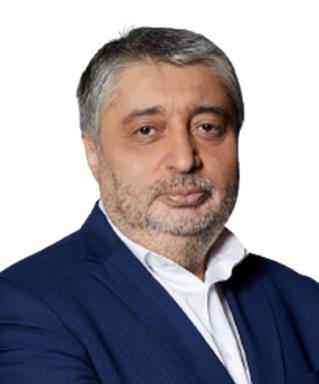
Türkiye tuzağa mı düşüyor?
Dünyadaki pek çok kritik merkezde Suriye’de olup bitenin arka planında hangi güç dengelerinin olduğu tartışılıyor. Türkiye’nin rolüne dair yaklaşımlar birbirinden farklı olsa da, hatırı sayılır bir çoğunluk Ankara’nın sahadaki etkinliğini kabul ediyor.
Pek çok farklı grubun bileşkesi olan HTŞ’nin, kendisini yeni bir akıl ve onun ortaya çıkardığı imajla sunması elbette dikkat çekici. Suriye’deki muhtemel yeni siyasi süreçlerde tek başına davranmayacağının mesajlarını vermesi de aynı ölçüde ilginç.
Bu hatırlatmayı yapmamın şöyle bir nedeni var. HTŞ’nin terör örgütü olarak kabul edilmesiyle, onun yeni dönemdeki pozisyonunu anlamak arasında kurulan bağ, geleceğe dair çok fazla bir şey söylemiyor.
Her durumda Suriye’de rejime karşı muhalif olan yapılar arasında artık önemli bir yeri var. Bunun nereye evrileceğini, söz konusu yapının sahip olduğu etkinliği de dikkate alarak değerlendirmek daha doğru bir yaklaşım. Ankara’nın bu yapıya yönelik tavrı ve tanımı net. Ancak gidişatı doğru okuyabilmek için de Suriye denklemindeki her aktörü dikkatle izlemek zorunda.
TÜRKİYE’YE ASIL TUZAK HANGİSİ?
Suriye'de olup bitene yönelik ilgimiz ve etkinliğimizi "tuzağa düşüyoruz" diyenlere sıkça rastlıyoruz bir haftadır. Buna katılmak mümkün değil.
Eğer illa bir tuzak arıyorsak doğru adres başka yerde. Meselenin uluslararası zeminlerde mayalanan bir başka boyutu daha var. “Sünni isyancılar”, “cihatçılar” gibi tanımlar üzerinden Ankara’nın etkinliği, farklı başlıklar altında kırılmak isteniyor. Birinde “mezhep”, ötekinde sözde İslami terör vurgusu var.
Bu haksız ve operasyonel suçlamaların, zaman içinde daha da yaygınlaşması muhtemel. Ana hedefi ise sahada çok büyük etkinlik sağlayan Türkiye’yi masada zayıf kılmak.
Öncelikle Türkiye’nin Suriye’de yaptığı her şey bugüne kadar daima uluslararası hukuktan kaynaklanan haklarına dayanarak gerçekleşti. Ne işgalci ne de bölgede ve küresel ölçekte örnekleri olduğu gibi emperyal hırslarla hareket ediyor.
TÜRKİYE MEZHEPÇİ DEĞİL
İkincisi, birçoğu Batı kaynaklı olmak üzere Türkiye çok ama çok uzun zamandır “Sünni bloğun lideri” gibi sunulmak ya da tanımlanmak isteniyor. Bu esasen asırları aşan bir tezgah ve Türkiye kendisini hiçbir zaman böyle tarif etmedi. Bir başka mezhebin karşıtlığına dayanan bir kimliği de taşımadı. Coğrafyamıza mezhepçilik denilen belayı kimin nasıl taşıdığı, sadece Suriye’deki son 45 yıla bakılarak rahatlıkla görülebilir. Türkiye, din ya da mezhep merkezli olarak tanımlanan bir bloğun ya da kuşağın liderliğine değil; imparatorluk geçmişinden taşıdığı farklı inanç ve etnik toplulukların bir arada barış içinde yaşadığı bir modele talip.
Suriye’de söylediği ve istediği de bu. Bu ülkede yaşayan farklı toplulukların, kendilerini temsil edecek geniş katılımlı bir siyasi sürecin ve yönetimin inşasını istiyor.
Üçüncüsü, bugün Suriye Milli Ordusu (SMO) üzerinden ortaya çıkan hareketliliği doğru ve insaflı değerlendiren herkesin kabul edeceği gibi, kendi güvenliğini tehdit eden, üstelik bunu bölgesel ve küresel sponsorlar üzerinden “devletimsi” bir yapı haline getirmek isteyenlere asla izin vermeyeceğini de ortaya koyuyor.
ASIL ENDİŞE KAOS
Şu anda Hama’nın ardından Humus’a doğru ilerleyen grupların nereye kadar ilerleyeceği sorusu da, ele geçirdiği alanlarda ne yapacağı da merak konusu. Belki üçüncüsü soru, bunları elinde ne kadar tutup tutamayacağı.
Tam da bu nedenle Türkiye’nin Suriye’deki yeni hareketliliğe olan ilgisi, şehirlerin ele geçirilmesi, el değiştirmesi veya bir grubun etkin olması üzerine kurulu değil. Ankara, masada hala sıcak tutmaya çalıştığı siyasi süreçlere yönelik Şam rejiminin mesafesi ve vurdumduymazlığı devam ederse, kaosun daha da artacağını öngörüyor.
KENDİ İÇİMİZDEKİ TARTIŞMALAR
Kendi içimizdeki tartışmaların ne denli sağlıklı yürüyüp yürümediğine dair birkaç değerlendirmeyle tamamlayalım.
Gayet net ifade etmekte yarar var. Türkiye’yi mezhepçilikle suçlamak haksız olduğu kadar tehlikelidir ve bu konuda söylenen her söze herkesin azami düzeyde dikkat etmesi gerekir.
Türkiye, asırlardır belli bir denge kurduğu ve rekabeti çatışmaya çevirmediği İran konusunda da son derece temelsiz suçlamalarla karşı karşıya kalıyor.
Türkiye-İran ilişkilerini, bölgenin iki büyük gücü arasında muhtemel bir çatışmanın geri dönülemez sonuçları üzerinden ele almak, zaten bir devlet politikası. Meseleye böyle yaklaşmak stratejik açıdan önemli. Türkiye, bu sağduyu ve aklı İran’a rağmen koruyor.
Ancak işi İran’ın çıkarlarını savunma ve Türkiye’yi hedef tahtasına koyma noktasına getirmenin akıl ve izanla bağdaşır tarafı olamaz.
Öyle günler ufuktaki, Türkiye’nin dostluğu, selamı ve gücü çok daha kıymetli olacak. Bunu daha kendi içimizde anlatamıyorsak, gerçekten işimiz çok ama çok zor.
